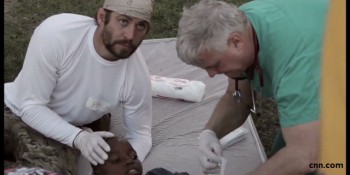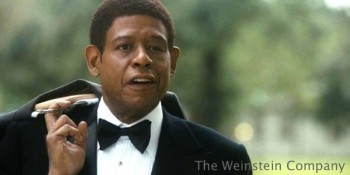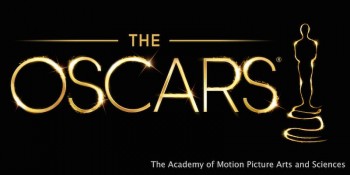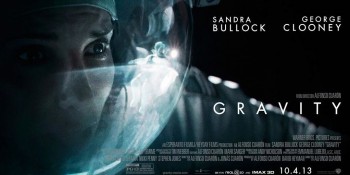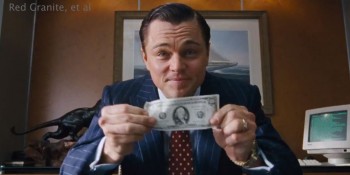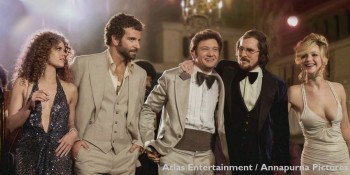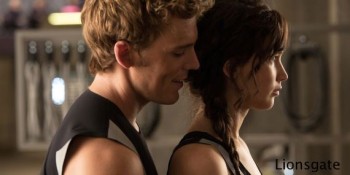This week, “Fanning Out” examines the challenges of book adaptations. This is the second entry in an on-going discussion of this topic. When you’ve finished reading this column, check out Kevin Hillman’s analysis, “Catching Fire exemplifies faithful adaptation.” Share your own thoughts in the comments or on our Facebook page.
I’m a book nerd. Ask anyone who knows me and they’ll confirm this fact. I typically read at least 50 books a year. As an English major, I can sometimes be a little snobbish when it comes to books. (I’m sorry, but I refuse to read anything with James Patterson’s name on the cover.) I’m also a big fan of movies and, quite often, those two interests overlap.
Film adaptations are the bane of many book lovers’ existences. There’s always something about the adaptation that hits a nerve: leaving out key scenes, adding in made-up material, changing important elements of the story — die-hard fans of a book can always find something to complain about when it’s made into a film.
One of the movies I’ve heard the most complaints about recently is the latest Hobbit film, The Desolation of Smaug. While the basic framework of the film is taken from the book, the vast majority of the film was written by Peter Jackson. Really hardcore J.R.R. Tolkien fans are extremely offended by the liberties Jackson took with the text. I’m a little more forgiving, mostly because, source material aside, it was a fun movie. It helps that I knew going in that most of the film wasn’t in the book, so I didn’t try to compare the two. Also, a lot of what Jackson added was based on information from the appendices in The Lord of the Rings, and I thought he at least remained true to the spirit of Middle Earth.
Sometimes, I’m more inclined to agree with a films’ critics. I was pretty forgiving through most of the Harry Potter films, but The Goblet of Fire stretched me to my limit. Was it really necessary to add in several minutes of a dragon fight that didn’t take place in the books but cut nearly everything that showed the bond forming between Harry and Sirius? It’s been years, but I’m still having trouble letting that one go.
Hobbits and dragon chases aside, I’ve come to the conclusion that the only possible way to enjoy a book-to-film adaptation is just to accept it will not be an exact duplicate of the book — nor should it be.
The truth of the matter is: some things that work excellently on the page just do not translate well on film. The entirety of Blindness by José Saramago comes to mind. The book was riveting and brilliant, the 2008 film, which was a fairly faithful adaptation, was too slow, and I actually got bored while watching.
I’m the kind of person who, if I hear a movie I want to see is based on a book, I want to read the book first. But I’ve reached the point where I try as much as possible to separate the book and the film in my mind and not sit there comparing them the entire time. The trick is: don’t read the book immediately before seeing the movie. Read the book early — preferably several months before the movie comes out, if possible. That way, you won’t have every little detail fresh in your mind, so you might not be as critical when something has changed.
The same goes for re-reading the book. I used to re-read each Harry Potter book before its respective movie came out. After the fifth book, I realized this was actually hindering my enjoyment of the films, not helping. Thereafter, I stopped re-reading the books right before seeing the movies, and I found I was able to enjoy them much more.
Another thing I’ve learned is that if the movie is based on a book you really love, don’t make up your mind about the movie version after a single viewing. I’ve found that I have a tendency to compare the film to the book on the first viewing, then on a second viewing, I’m more relaxed and able to just watch the film and not think about the book as much. I enjoyed The Hunger Games much more the second time around than I did the first time (though I’m still not a fan of all the shaky cam used in the first movie).
But the real question is: does the movie really have to be an exact adaptation of the book? Is it fair for fans to judge so harshly? Isn’t it better for a film to remain true to the spirit and characters of a book than follow it to the letter, possibly to the detriment of the story and characters? Books and film are two completely different mediums, and they work two very different ways.
Books have the ability to be much more detailed than movies and they can take place over an extended period of time. For the sake of the viewer, screenwriters have to condense events and change timelines in order to keep a coherent story line. There’s no way to avoid that.
Character development is also subject to inevitable reworking. While reading, it’s much easier to keep track of multiple characters, and if you get confused, you can always flip back to refresh your memory. Film doesn’t have that luxury. This leads to cutting some story arcs entirely, or combining characters in a movie. I recently watched Divergent, and while I enjoyed the movie, I really felt like there was a lot missing in the arcs of the secondary characters, primarily Tris‘ friends in the Dauntless faction. I know this was necessary for time, but I love character-driven stories, so that omission was a little disappointing.
However, while Divergent had to cut out some of the secondary arcs with minor characters, I felt it streamlined and focused the story as compared to the novel and did a great job of remaining true to the plot and characters of the book. It’s definitely one of the better young adult adaptations I’ve seen, along with The Hunger Games: Catching Fire.
I’m not saying all book-to-film adaptations are good; some are so terrible even I can’t excuse the decisions they’ve made. However, television shows like The Walking Dead, True Blood, and, to a lesser extent, Game of Thrones have shown us they can exist independently from their source material. (Game of Thrones remains truer to the novels than the other shows, but it’s still made some changes.) The Walking Dead is one of the most popular shows on network television, and I hear very few complaints about how far it’s strayed from the graphic novels. If we can accept these deviations on television, then surely we can cut the movies — which have even less time to tell the story — some slack.
After repeatedly being disappointed by the movie versions of books I’ve loved, I’ve finally decided it’s much better to go into the theater and completely forget everything I already know about the story and just enjoy the film. I’d much rather watch a film that’s well-made, even if it deviates from the book, than never be happy with any movie made from a book. Keep an open-mind, and maybe you’ll learn there’s room in your heart to love the book and the movie.

